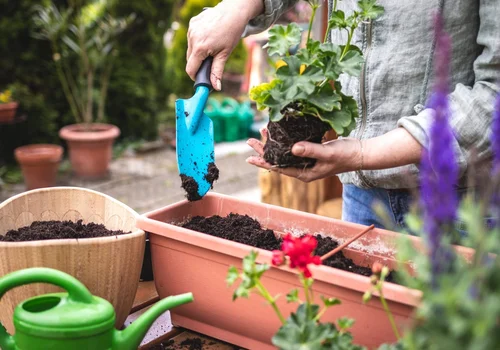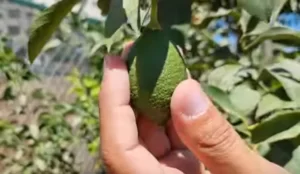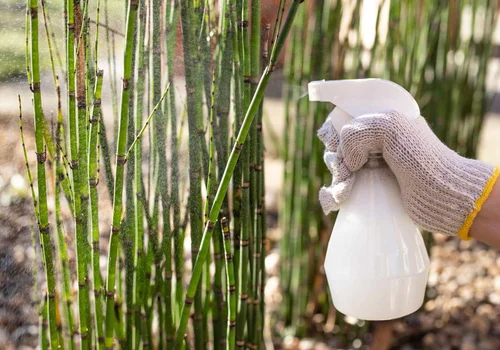Composting is an effective way to recycle organic waste and create nutrient-rich material for your garden. While it’s an eco-friendly practice, composting can sometimes take a painfully long time. But with the right steps and a bit of effort, you can make composting faster and more efficient. In this guide, we’ll walk through simple tips to accelerate the composting process and provide you with high-quality compost in record time.
The Four Key Elements of Composting
To make compost quickly, it’s essential to focus on the four main elements that contribute to compost breakdown: green materials, brown materials, air, and water. Getting the balance of these ingredients right will speed up the decomposition process, leading to crumbly, sweet-smelling compost. Let’s break down how each of these elements works and how to optimize them for faster compost production.
1. The Right Balance of Green and Brown Materials
To create compost quickly, maintaining a balanced mix of green and brown materials is crucial. Green materials are rich in nitrogen, while brown materials are high in carbon. Both are necessary for the microbes responsible for decomposition. You should aim for roughly equal proportions of green and brown materials in your compost heap.
What Are Green Materials?
Green materials are fresh and often sappy, with a high nitrogen content. Examples include:
- Grass clippings
- Spent crops and old bedding plants
- Kitchen scraps (vegetable peels, fruit cores)
- Coffee grounds and tea leaves (despite their brown color, they’re considered “greens”)
What Are Brown Materials?
Brown materials are dry, carbon-rich, and coarser. These materials help to create structure and prevent the compost from becoming too wet and compacted. Examples include:
- Dried leaves
- Twiggy prunings
- Straw
- Cardboard and shredded paper
To speed up the composting process, chop or shred your materials into smaller pieces. The more surface area available, the easier it is for composting organisms to break down the materials.
2. Adding Natural Activators
Natural activators can significantly boost the composting process. These activators are rich in nitrogen and help break down tougher materials quickly. Instead of purchasing commercial compost accelerators, use natural options that are often readily available.
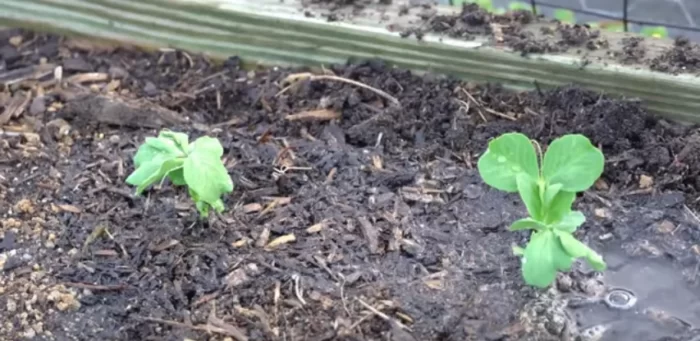
Some of the best natural activators include:
- Manure from herbivorous animals (chicken droppings, horse manure)
- Coffee grounds (many coffee shops will give them away for free)
- Straw or shavings from guinea pigs, rabbits, or rodents
These activators provide a high nitrogen content that helps speed up the breakdown of brown materials, especially if your compost heap is heavy on the carbon side.
3. Turning Your Compost Regularly
Oxygen is essential for the composting process. Aerobic bacteria, which break down the organic material in your compost, require oxygen to thrive. To boost oxygen levels and speed up decomposition, turn your compost regularly. By mixing your compost every couple of weeks, you’ll introduce fresh air, encouraging bacterial activity and speeding up the heating process.
A hot compost pile is a sign that the decomposition process is in full swing, which can shorten the composting time significantly.
4. Watering Your Compost
Compost needs the right level of moisture to decompose effectively. Too much water, and your compost will turn into a soggy, smelly mess. Too little water, and the decomposition process will slow down. A good rule of thumb is to keep your compost moist, but not soaking wet.
To check if your compost has the right moisture content, grab a handful of compost and squeeze it. It should feel damp, but not drip water. If your compost is too dry, water it once or twice a week. If it’s too wet, add more brown materials and ensure it’s adequately aerated.
5. Covering Your Compost Pile
As winter approaches or in rainy conditions, covering your compost pile is a good idea. This helps keep the compost heap insulated and prevents excess water from making it too wet. You can use a tarpaulin, several layers of cardboard, or old carpet made from natural fibers (such as jute or hemp) to cover your pile.
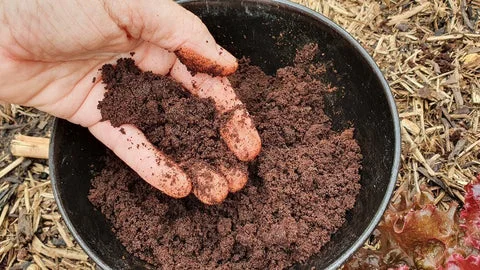
Covering your compost helps maintain higher temperatures inside, which keeps the decomposition process active, even during colder months.
6. Location Matters
When starting a new compost heap, placing it directly on the soil is ideal. This allows worms and beneficial bacteria to easily enter the compost pile and assist with the decomposition process. If placing it on soil isn’t possible, adding a layer of soil or mature compost to your pile will introduce these helpful microorganisms.
7. Building Your Compost Pile
If you’re composting large amounts of material, consider creating a compost heap using wooden pallets. Pallets are often available for free and provide excellent structure and air circulation for your compost pile. You can join three pallets together to create a sturdy enclosure, allowing you to build a larger compost heap that retains heat well, especially during colder seasons.
When building your compost heap, start by adding a layer of brown materials at the bottom to improve aeration, then alternate between layers of green and brown materials.
Troubleshooting Common Compost Problems
Even when you follow the steps above, composting can sometimes go awry. Here’s how to solve common composting issues:
- Too Wet: If your compost becomes waterlogged, it can turn into a smelly, sludgy mess. To fix this, add more brown materials like straw or cardboard, and turn the pile to introduce air.
- Too Dry: If your compost pile is too dry, decomposition will slow down. Water the pile until it feels damp, but not soaking wet.
- Not Hot Enough: If your compost pile isn’t heating up, it may be too small or lack nitrogen-rich materials. Add more green materials or a natural activator like manure or coffee grounds, and turn the pile to introduce oxygen.
By following these steps, you can speed up the composting process and produce rich, fertile compost in as little as three months, depending on your local climate and conditions.
Frequently Asked Questions
- How long does it take to make compost?
- With the right balance of materials and regular maintenance, you can produce compost in as little as three to six months.
- Can I compost meat or dairy products?
- It’s best to avoid composting meat, dairy, and fatty foods as they can attract pests and cause unpleasant odors.
- Why does my compost smell bad?
- A foul smell usually indicates that your compost is too wet or lacks air. Add more brown materials and turn the pile to increase aeration.
- How do I know when my compost is ready?
- Compost is ready when it’s dark, crumbly, and has an earthy smell. The original materials should no longer be recognizable.
- Can I speed up composting without turning the pile?
- While turning speeds up the process, you can still make compost without turning by ensuring a good balance of green and brown materials and proper moisture levels.
- What should I do if my compost is too dry?
- Water the compost pile thoroughly until it’s damp but not soggy, and consider covering it to retain moisture.
- Can I compost weeds?
- Yes, but make sure the weeds are free of seeds to avoid spreading them when you use the compost in your garden.

